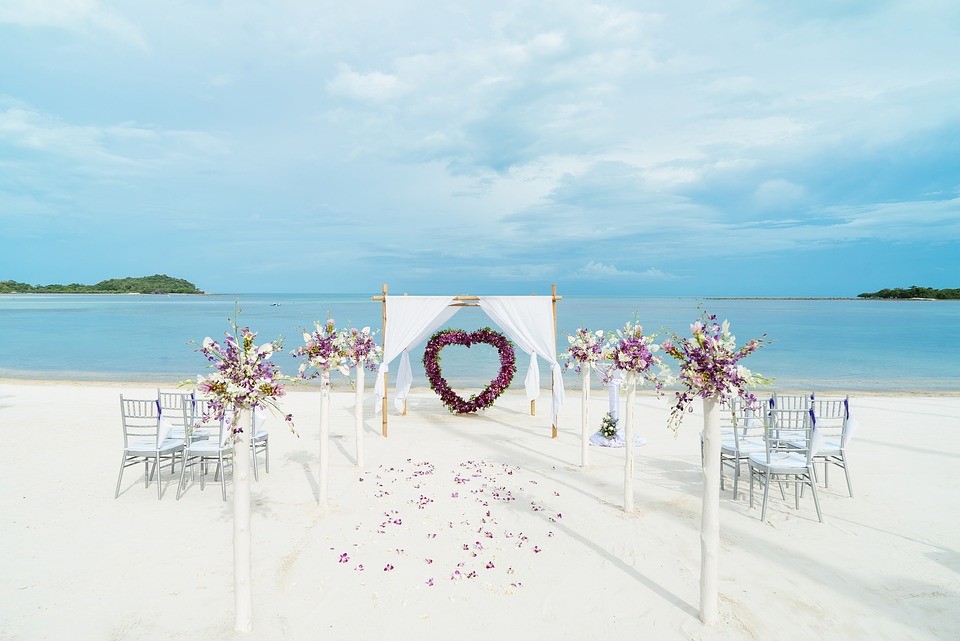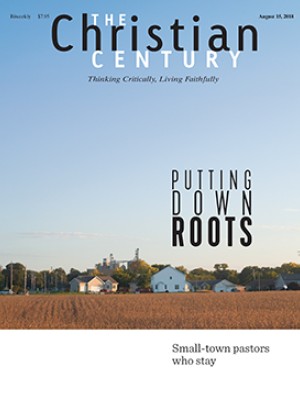Nontraditional weddings have become the norm
Part of me admires couples who don't pretend to be religious on their wedding day.

Dear Pastor Marty: I have been asked by my friend to become ordained so I could marry her and her boyfriend. I am honored and delighted to do this. I was wondering, do you know how I can become ordained? Thanks much, Trisha
Hey Peter, I’m going to be the officiant for my sister’s wedding in a couple of months. Do you have a prayer or something I could use? I’d love it. Chris
Ten years ago, email requests like these from friends and parishioners didn’t exist. Last year I received six of them, resembling the two samples above. My customary reply doesn’t take long to write: “Congratulations! I don’t have brilliant suggestions to offer. You might try Google.”
The percentage of weddings that take place in churches has plummeted in the last decade. Other kinds of venues, such as barns, beaches, wineries, parks, and hotel ballrooms, now host over 75 percent of weddings in America. As weddings shift away from ecclesiastical settings, the emphasis on providing the ultimate guest experience seems only to grow. Photo booths, wine tastings, selfie stations, sparklers, games, and magicians are now a regular part of many wedding ceremonies.
Read our latest issue or browse back issues.
State laws vary widely as to who can perform a wedding. Increasingly, a friend or family member ends up doing the favor—an arrangement that many couples find cheaper, easier, and more personal. A few clicks online are all it takes to get ordained. Sites such as the Church of the Latter-Day Dude or the Universal Life Church, which claims to have ordained more than 20 million people, stand at the ready.
California law permits anyone to apply for a one-day permit to become a deputy commissioner of marriage. In states like Colorado and Wisconsin, a couple can solemnize their own wedding, which sounds plenty efficient. In Maryland, any adult can sign a marriage license as long as the couple getting married agrees that he or she is clergy. Sizing up someone for that role strikes me as funny, though I shouldn’t laugh. My own parishioners may be making assessments in their heads on a weekly basis as to whether or not I qualify to be their pastor.
A sharp drop in church weddings corresponds, of course, to the growing absence of formal religious practice. Part of me admires couples who don’t pretend to have spiritual interests on their wedding day and so don’t end up treating church as an inconvenient stop on the way to a party. Another part of me laments the implications of this shift. Pumping significant energy into a spectacular wedding event only serves to draw attention away from the preparation for long-term marriage realities. Liturgies of sacred meaning easily disappear into highly sentimental experiences.
I love being with couples who take God and the craft of marriage seriously. I don’t like functioning as a prop in a mostly pagan show. The $72 billion wedding industry has little interest in helping prepare people for marriage. There’s no money in that. Besides, who would encourage a couple to sit through counseling sessions on family, forgiveness, anger, joy, and balance in life when there’s a beach wedding to plan? If the chairs were to tilt awkwardly in the sand or sand flies were to swarm the moment, there’s no telling what might happen to that marriage. One can only hope Google would come through.
A version of this article appears in the print edition under the title “The wedding experience.”





